Turning the Tide: Charting a Sustainable Future for Sri Lanka’s Fisheries
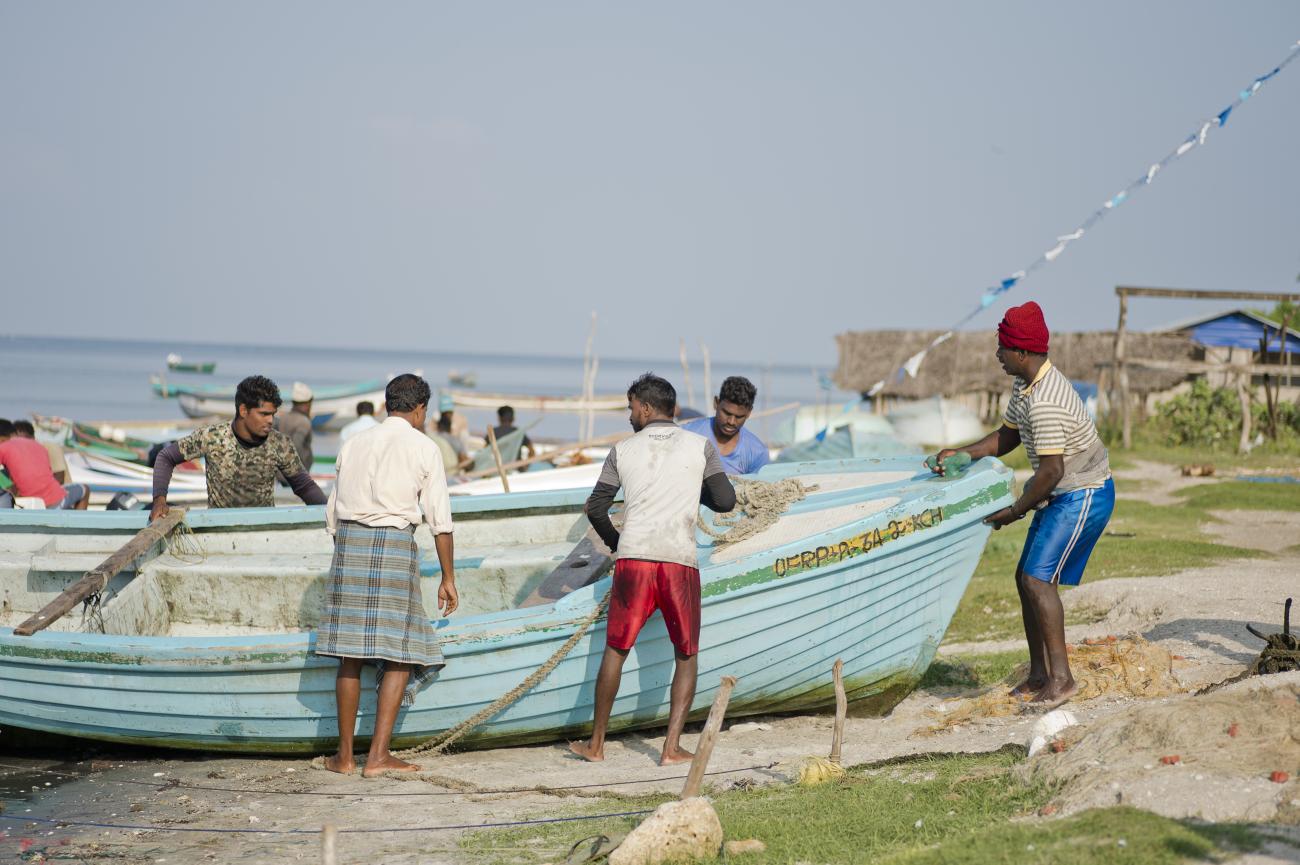
On International World Fisheries Day, we explore the collaborative efforts that are steering the fisheries sector toward a more sustainable future.
As the sun rises over the azure waters of the Indian Ocean, Sri Lanka stands as a testament to the intrinsic bond between its people and the vast aquatic resources that surround the country. As an island nation, the fisheries sector plays a significant role in shaping Sri Lanka's social and economic life. With a coastline of over 1,700 km and an Exclusive Economic Zone exceeding 500,000 km2, fisheries remain a linchpin for the country's food security and economy.
In the vibrant tapestry of Sri Lanka's social and economic life, the fishing industry stands as a thread that weaves through coastal communities and inland landscapes. With three main subsectors – coastal, offshore, and inland fisheries – this industry sustains the livelihoods of over 2.5 million coastal residents across the country.
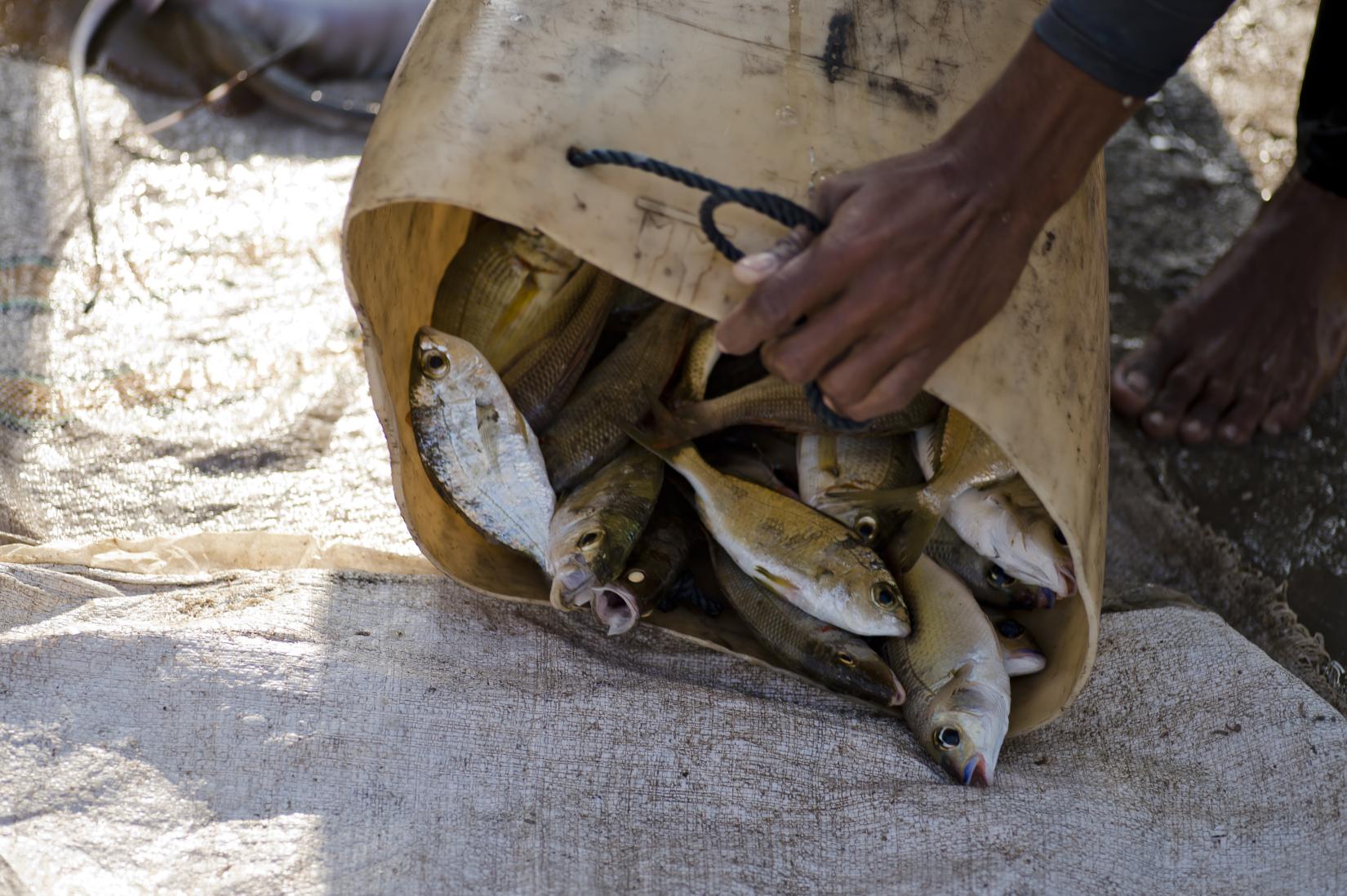
Fish, constituting 50% of Sri Lankans' animal protein consumption, underscores the sector's pivotal role in ensuring food security. Sri Lanka’s fisheries industry has immense potential to increase income sources, improve fishing stock status, and gain market recognition through aquaculture farming. Despite vast aquatic resources, the journey of Sri Lanka's fisheries has not been without its share of storms. From the lingering consequences of conflict to overfishing and impacts of climate change, the sector has weathered several difficult challenges.
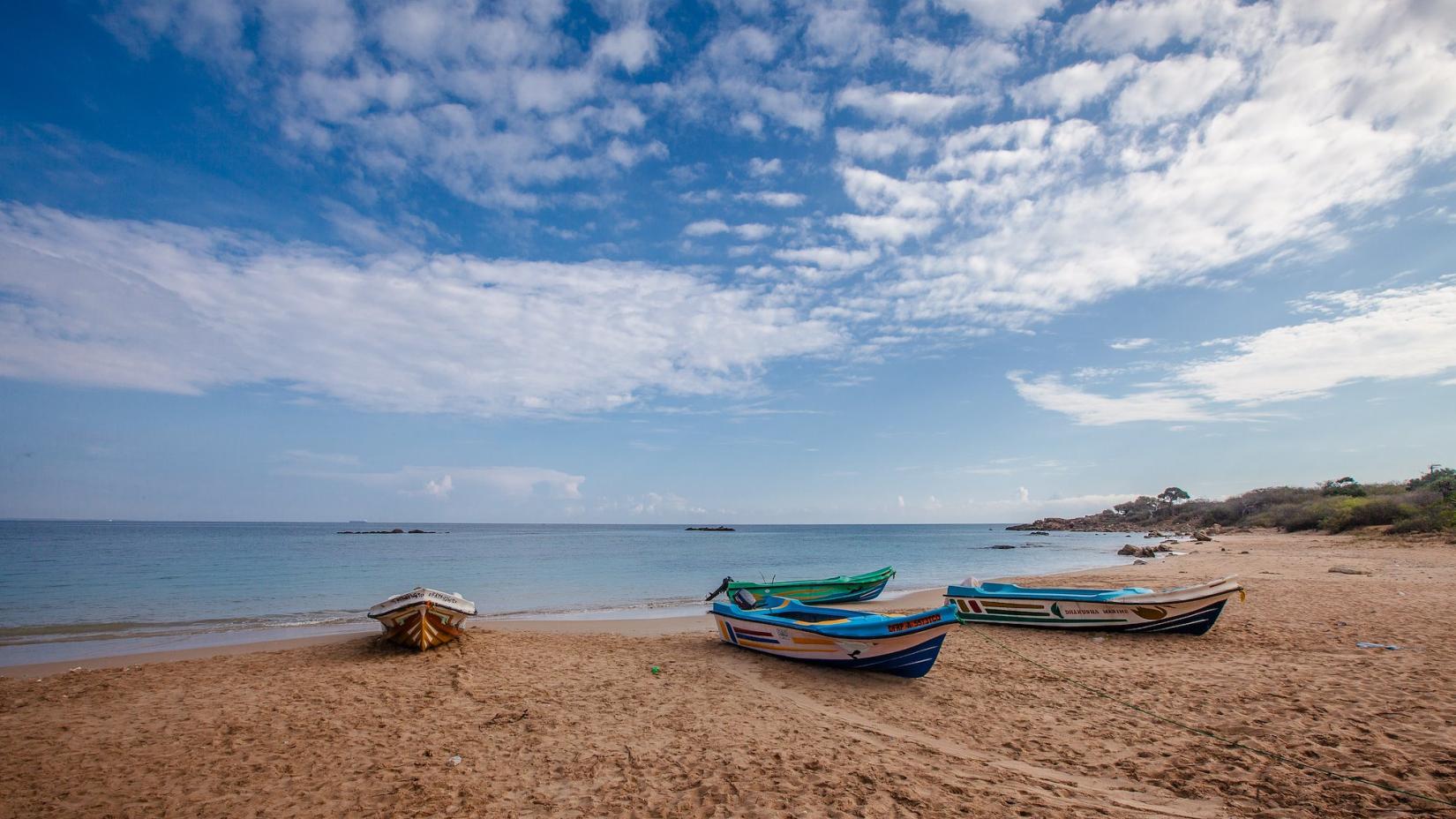
Challenges facing Sri Lanka’s fisheries sector
Coastal communities, once devastated by war, now grapple with the aftermath and the difficulties of rebuilding lives and livelihoods. Traditional reliance on the ocean for sustenance is under threat due to increased competition and destructive practices, such as dynamite fishing. The struggle is not only economic but also environmental, as local ecosystems face risks from external pressures. The need for alternative income sources, as seen in the shift toward eco-tourism and cooperative endeavours, reflects the urgency for sustainable solutions.
Overfishing, illegal, unreported, and unregulated (IUU) fishing, as well as depletion of fish stocks are also pressing issues. The sector is heavily impacted by effects of climate change on the marine environment, posing threats to sustainability. While aquaculture farming presents promising income sources, there is a great need for diversification, innovative processing methods, and increased value addition along the value chain.
Sri Lanka, a significant importer of fishery products, faces challenges in domestic production, necessitating imports to meet the demand for dried fish and sprats. The role of fisheries-affiliated industries that provide inputs such as crafts, gear, and infrastructure is crucial for sustainable development.
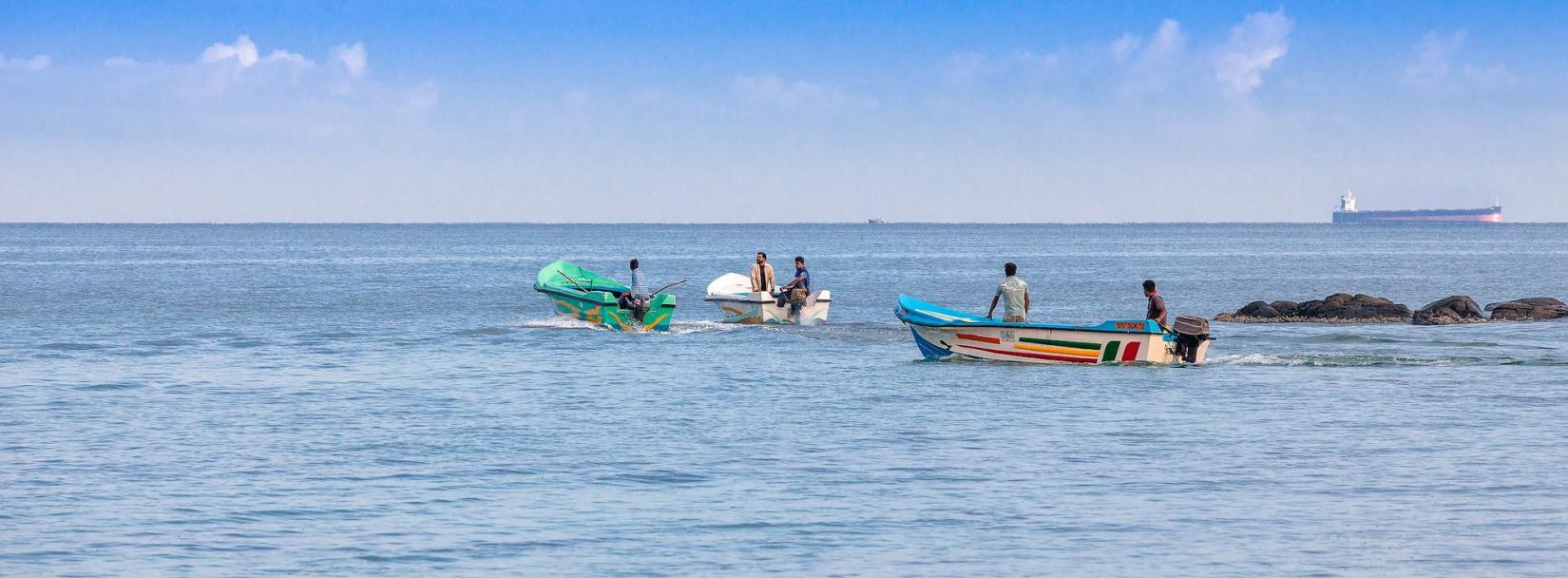
Other challenges facing fisheries in Sri Lanka concern the occupational hazards and increasingly precarious nature of the profession. Traditional labour relations built on social norms, reciprocity, and trust, which historically provided some form of labour protection, are proving insufficient in the face of mechanization, modernization, and globalization.
The expansion of deep-sea fisheries presents risks due to the hazardous and isolated nature of fishing, exacerbated by inadequate legal frameworks and a lack of comprehensive labour protection. The sector, largely considered 'informal', often lacks formal work agreements, leaving fishers vulnerable in case of labour-related disputes. Despite advancements in technology, occupational safety remains a concern, with low adherence to safety measures.
Sustainability and food security
In the face of these challenges, the United Nations works in partnership with the fisheries sector and other stakeholders to support livelihoods and enhance resilience within the fisheries sector in Sri Lanka.
The Food and Agriculture Organization of the United Nations (FAO) and the International Labour Organization (ILO) are among the agencies leading this effort in collaboration with key stakeholders such as the Ministry of Fisheries, National Aquaculture Development Authority (NAQDA), and the National Aquatic Resources Research and Development Agency (NARA).
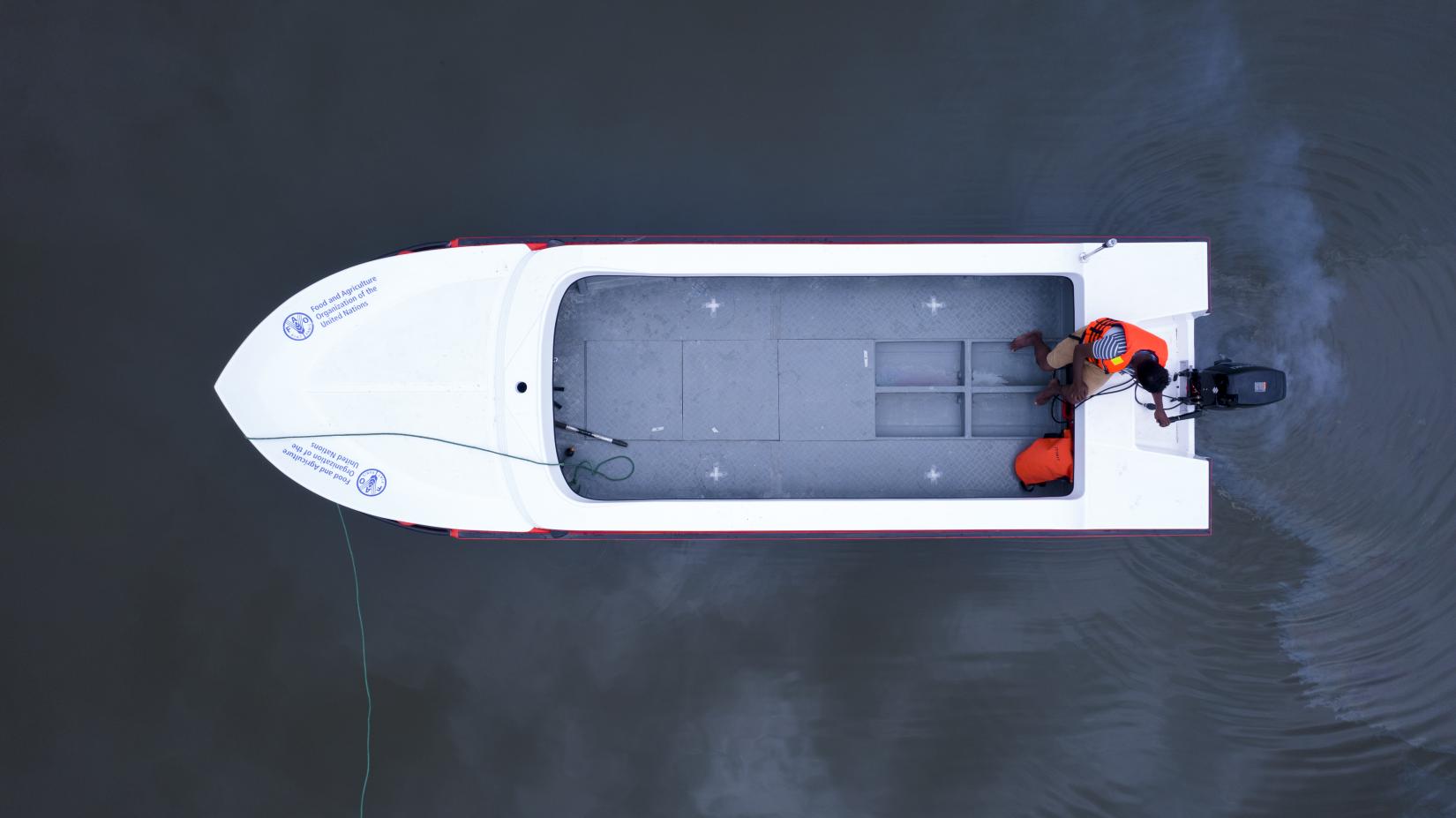
FAO-led initiatives, such as the ‘Technical Assistance in Sea Cucumber Aquaculture and Processing project’, contribute to the development of technical skills and management, fostering sea cucumber industry growth. The project also extends its reach to a comprehensive study on sea cucumber stocks, new guidelines, and strengthening sea ranching programmes.
Furthermore, FAO addresses post-harvest losses through projects that focus on refrigeration technology for multiday fishing vessels and sustainable fishing practices. These aim to reduce food waste, support capacities to adapt to and withstand climate change, and enhance the entire fish value chain.
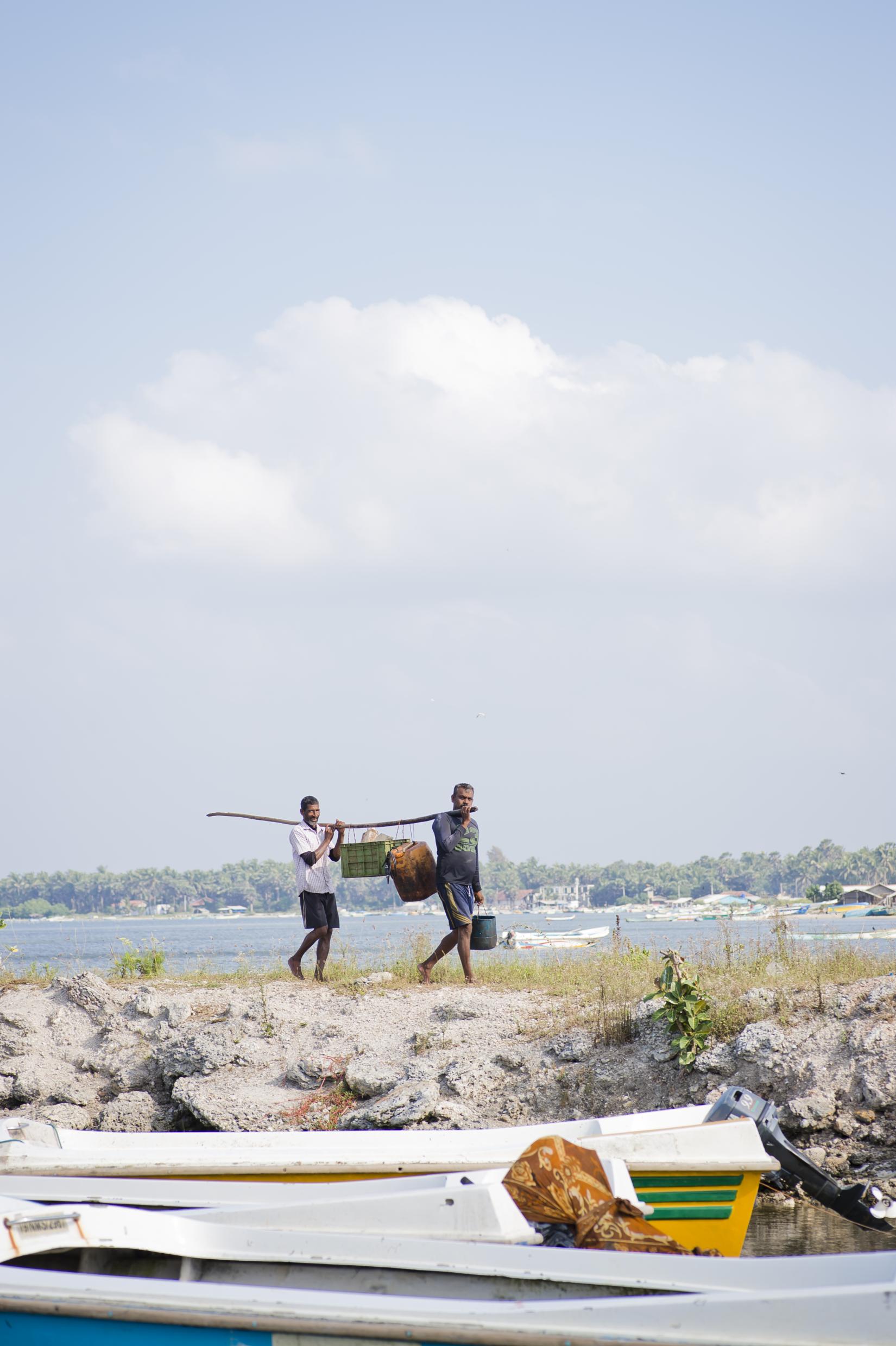
Promoting inclusive and decent work opportunities in the fisheries sector, ILO is supporting Sri Lanka’s journey towards ratification of the Work in Fishing Convention, 2007 (No. 188). Supported by the Australian Government Department of Foreign Affairs and Trade (DFAT), and the Government of Norway, ILO has conducted on-the-ground consultations across the island with fishers, boat owners, fisher families and other relevant groups, and has assisted the Government in developing a roadmap towards ratification of the Work in Fishing Convention. Dividends of ratification of C188 will include improved work conditions and social security, improved image of the sector, as well as increased competitiveness in the global market.
Empowering sustainable livelihoods
In collaboration with the European Union Support to District Development Programme, the United Nations Development Programme (UNDP) is supporting the development of sustainable practices in Sri Lanka's fisheries sector. The Vidattaltivu Eco Tourism Society, established under this programme, is a testament to UNDP's commitment to revitalizing coastal communities. In Vidattaltivu, a coastal town in the Mannar district, the programme facilitated the establishment of an eco-tourism initiative, providing infrastructure support such as a boat yard and improved dock access.
By empowering youth to embrace entrepreneurship and promoting their involvement in governance, UNDP aims to create alternative sources of income beyond traditional fishing. The programme addresses challenges faced by fishing communities, including competition, and promotes sustainable practices. Through the ‘Catalytic Support to Peacebuilding programme’, UNDP support fishermen like Kopal Nilukshan, a fisherman based in Soodaikudah, who was formerly displaced due to conflict. Kopal has been provided with new boats, GPS systems, and nets. This initiative enhances livelihoods, fosters cooperation through local cooperatives, and contributes to the overall economic development of fishing communities.
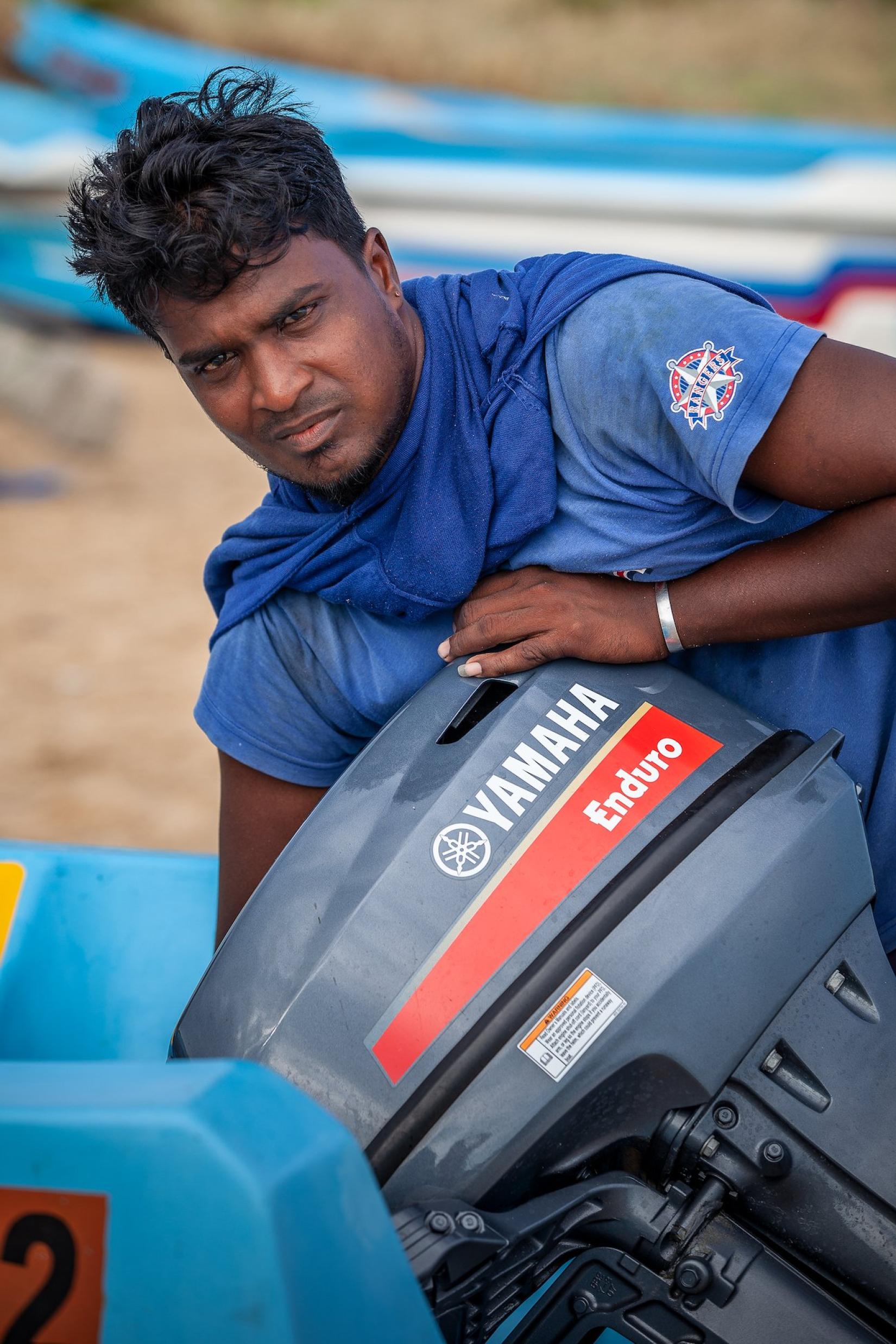
Similarly, the World Food Programme (WFP), has assisted in the scaling up of the freshwater fish value chain in drought-prone districts in Sri Lanka. The project was part of a wider resilience-building and livelihood diversification initiative for farmers and fishing communities in areas vulnerable to climate shocks. With support from the Swiss Development and Cooperation, the project has provided equipment and training to ensure that these fishing communities have adequate knowledge and resources to carry out their businesses. With WFP’s support, their daily income has improved almost 5-fold (up to LKR 5000/- per day from LKR 1000/-) providing a glimmer of hope for better business prospects.
Transforming gender dynamics
In Sri Lanka, low-skill, low-wage jobs within the fishing industry tend to be predominately occupied by women. To address this gender-based discrepancy, ILO has facilitated the establishment of a sea food processing factory in the area, opening-up much needed employment opportunities for women, and training to progress in the career. In an effort to break the male-centric culture and decision-making processes in fisheries cooperatives, ILO also facilitates awareness-raising, engages in provincial-level discussions, and advocates for systematic chance at the policy level. As a result, ILO successfully increased the participation of women in cooperative boards, helping to ensure that their perspectives are considered in decision-making processes.
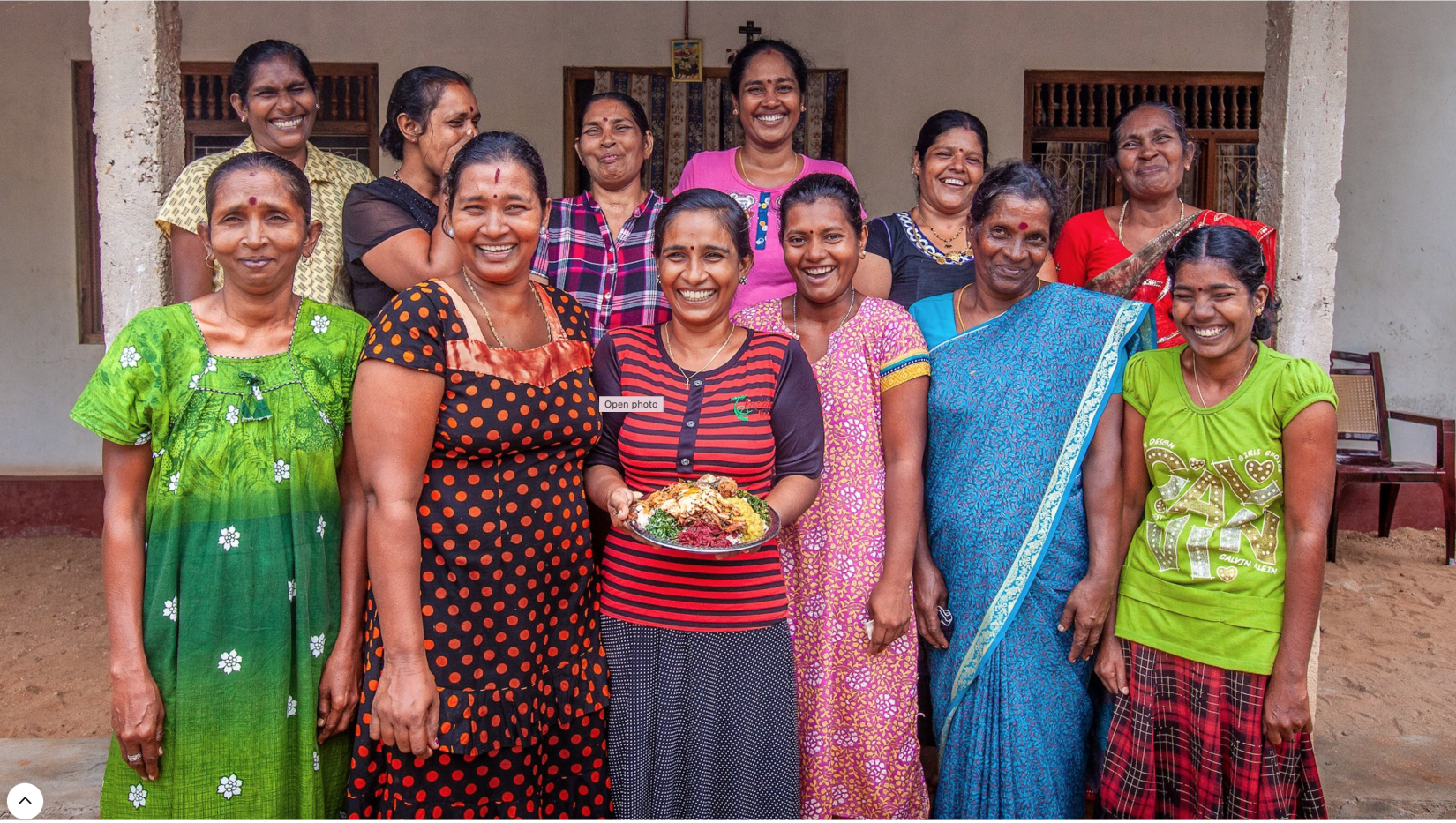
Furthermore, UNDP's engagement with the Valalai Women’s Rural Development Society showcases a commitment to empowering women in the fisheries sector. The programme has enabled the establishment of a food and beverage outlet, which supports local women entrepreneurs, contributes to community development, and helps foster economic resilience.
Charting the course ahead: collective action for a sustainable future
While strides have been made, much remains to be done to ensure that fisheries in Sri Lanka are equiped with the tools, skills and resources needed to thrive. Continued support for eco-tourism, business development, and skill enhancement can gradually reduce dependence on traditional fisheries, creating alternative income sources. The Valalai Women's Rural Development Society serves as a model for community-based initiatives, empowering marginalized groups and ensuring sustainable growth.
Investment in skill development programmes is crucial to equip fishermen and entrepreneurs with the tools needed to adapt to changing circumstances, ensuring their resilience in the face of challenges. Advocacy for sustainable fishing practices, environmental conservation, and adherence to safety measures remain pivotal for the long-term health of fisheries.
Collective action is the cornerstone for sustained progress. As we celebrate International World Fisheries Day, let us recognize the invaluable contributions of Sri Lanka's fisheries sector to the nation's well-being. Through collaborative efforts, we can overcome challenges, uplift communities, and build a future where the riches of the sea continue to sustain generations to come.





